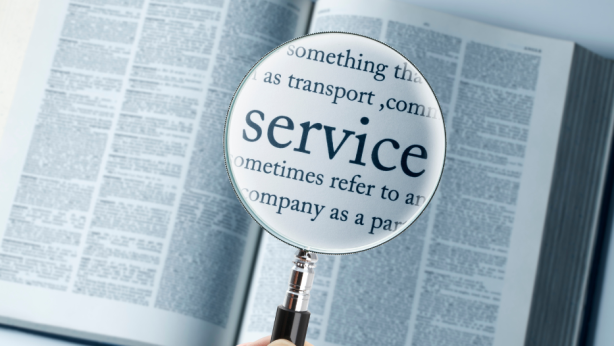How to Make the Most of Your New Life in Canada (step-by-step-guide)

**Please review the disclaimer at the end of this document before reading or using this guide.
Moving to a new country is both an exciting and challenging experience. As a new immigrant in Canada, you have the opportunity to start fresh, explore new opportunities, and build a fulfilling life. Canada is known for its diversity, inclusiveness, and high quality of life, but adapting to a new environment can take time and effort. This guide provides information on how to make the most of your new life in Canada, helping you navigate the transition smoothly and successfully.
Step 1: Embrace Canadian Culture and Values
- Learn About Canadian Culture:
- Canada is a multicultural society that values diversity, respect, and inclusiveness. Take the time to learn about Canadian customs, holidays, and traditions to help you feel more connected to your new community.
- Participate in cultural festivals, local events, and national celebrations like Canada Day, Thanksgiving, and Remembrance Day.
- Respect Local Laws and Social Norms:
- Understanding and respecting Canadian laws and social norms is essential. This includes traffic rules, recycling practices, and social etiquette like saying “please” and “thank you.”
- Be open to learning about the Canadian way of life and adapt to the differences from your home country.
- Language Skills:
Step 2: Build a Support Network
- Connect with Local Communities:
- Join local community groups, cultural associations, or newcomer organizations to meet people who share your background or interests. This will help you build a support network and feel more at home.
- Participate in events organized by these groups, such as potlucks, cultural festivals, and networking events.
- Stay Connected with Family and Friends:
- Keep in touch with family and friends from your home country through regular communication. This can provide emotional support and help you feel connected to your roots.
- Use technology like video calls, social media, and messaging apps to stay in touch.
- Seek Out Mentors:
- Look for mentors who can guide you through the transition to life in Canada. Mentors can provide valuable advice on everything from finding a job to navigating Canadian systems.
- Many newcomer organizations and community centers offer mentorship programs.
Step 3: Take Advantage of Education and Training Opportunities
- Pursue Further Education:
- Consider enrolling in educational programs, whether to upgrade your skills, pursue a new career path, or improve your language proficiency.
- Canadian universities, colleges, and adult education centers offer a wide range of programs for newcomers. Online learning platforms like Coursera and edX also offer courses that can help you build new skills.
- Recognize Your Foreign Credentials:
- If you have professional qualifications from your home country, find out how to get them recognized in Canada. This may involve having your credentials assessed or taking additional courses or exams.
- Organizations like World Education Services (WES) can help with credential evaluations.
- Attend Workshops and Seminars:
- Many community centers and newcomer organizations offer workshops on job searching, resume writing, interview preparation, and Canadian workplace culture. Attending these can boost your confidence and help you adapt to the job market.
Step 4: Explore Employment Opportunities
- Research the Job Market:
- Understand the job market in Canada, including the demand for your skills and the expectations of employers. Websites like Job Bank, Indeed, and LinkedIn are great resources for job hunting.
- Networking is crucial in Canada, so attend job fairs, industry events, and networking meetups to connect with potential employers and colleagues.
- Tailor Your Resume and Cover Letter:
- Canadian resumes and cover letters may differ from those in your home country. Tailor your resume to highlight relevant experience and skills, and make sure your cover letter is concise and targeted to the job you’re applying for.
- Seek help from newcomer services or online resources to ensure your resume meets Canadian standards.
- Consider Volunteering:
- Volunteering is a great way to gain Canadian work experience, expand your network, and contribute to your community. It can also help you learn about the Canadian workplace culture and improve your language skills.
- Use Government Resources:
- The Canadian government offers various programs to help newcomers find employment. Visit your local employment center or check online for services like job search assistance, skills training, and language support.
Step 5: Manage Your Finances Wisely
- Open a Bank Account:
- Open a Canadian bank account as soon as possible to manage your finances. Choose a bank that offers newcomer packages, which often include benefits like free banking for a limited time.
- Familiarize yourself with Canadian banking services, including online banking, credit cards, and savings accounts.
- Understand the Canadian Tax System:
- Learn about the Canadian tax system, including when and how to file your taxes. The Canada Revenue Agency (CRA) website provides detailed information and resources for newcomers.
- Consider hiring a tax professional or using online tax software to help you with your first tax filing.
- Budget and Save:
- Create a budget to manage your income and expenses. Consider setting aside money for emergencies and future goals.
- Explore savings options like Tax-Free Savings Accounts (TFSA) and Registered Retirement Savings Plans (RRSP) to build your financial security.
- Build Your Credit History:
- Building a good credit history is important in Canada for accessing loans, mortgages, and other financial products. Use a credit card responsibly and pay your bills on time to build a positive credit score.
Step 6: Take Care of Your Health and Well-being
- Register for Healthcare:
- Apply for a provincial or territorial health card to access Canada’s public healthcare system. The application process varies by province, so check your local government’s website for details.
- Find a family doctor or healthcare provider and familiarize yourself with the services available to you, such as walk-in clinics, emergency care, and mental health support.
- Stay Active:
- Physical activity is important for your health and well-being. Explore Canada’s parks, trails, and recreational facilities for activities like hiking, biking, and swimming.
- Join a local gym, sports team, or fitness class to stay active and meet new people.
- Maintain a Work-Life Balance:
- Balancing work and personal life is essential for your overall well-being. Make time for hobbies, social activities, and relaxation to ensure a healthy work-life balance.
- Access Mental Health Resources:
- Moving to a new country can be stressful, so don’t hesitate to seek support if you’re feeling overwhelmed. Many organizations offer mental health services, including counseling and support groups, specifically for newcomers.
Step 7: Explore and Enjoy Canada
- Travel and Explore:
- Canada is a vast country with diverse landscapes and vibrant cities. Take the time to explore your new surroundings, whether it’s visiting national parks, exploring cultural sites, or discovering local attractions.
- Consider taking road trips or using public transportation to explore different regions of Canada, from the Rocky Mountains in Alberta to the beaches of Prince Edward Island.
- Embrace Winter:
- Canada’s winters can be long and cold, but they also offer unique experiences. Embrace winter activities like skiing, ice skating, and snowshoeing, and learn how to dress warmly to enjoy the season.
- Participate in Community Events:
- Get involved in community events, such as festivals, markets, and fairs. These events are great opportunities to meet new people, learn about local culture, and feel more connected to your community.
- Stay Open to New Experiences:
- Be open to trying new things, whether it’s tasting new foods, learning about different cultures, or participating in unfamiliar activities. Embracing new experiences will enrich your life in Canada and help you adapt more easily.
Additional Tips for New Immigrants
- Stay Informed:
- Keep up to date with local news, government announcements, and community events to stay informed about what’s happening in your area.
- Be Patient:
- Adjusting to a new country takes time. Be patient with yourself as you navigate new systems, build relationships, and establish your life in Canada.
- Celebrate Your Achievements:
- Recognize and celebrate your achievements, no matter how small. Moving to a new country is a big step, and every milestone is worth celebrating.
- Seek Help When Needed:
- Don’t hesitate to ask for help if you’re facing challenges. There are many resources available to support newcomers, from settlement services to community groups.
Starting a new life in Canada offers many opportunities for personal growth, career advancement, and cultural enrichment. By embracing Canadian culture, building a support network, taking advantage of educational and employment opportunities, and managing your finances and health wisely, you can make the most of your new life in Canada. Remember to stay open to new experiences, be patient with yourself, and seek support when needed.
**DISCLAIMER: This document was prepared based on information gathered from various online sources. While our aim is to provide accurate and helpful information to newcomers in Canada, Active Action cannot be held responsible for any actions, outcomes, or situations that may arise from the use of this document. We strongly recommend that you verify any details with official sources or relevant authorities if you have any doubts or uncertainties about any information provided in this document. If you have any specific questions about the information in this document, or if you notice any inaccuracies or missing information, please inform us immediately through the contact form. We will respond to you as soon as possible and/or update the information as necessary.


